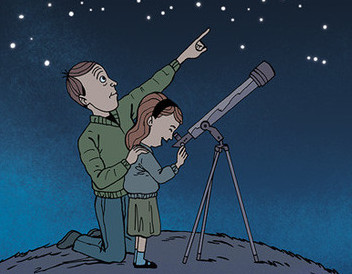The familial history on my mother’s side runs right back to the Mormon immigrants and their trek across the plains. Our family was part of the James G Willie Handcart Company, which was the first of two groups which make up the largest disaster in the history of American westward migration. Their story has been told to me more times than I can count, and referenced even more frequently.
Unfortunately, it seems that none of my forebearers saw fit to keep a journal or diary, so the specifics of their journey was and likely will remain a mystery. The story I was told while growing up, in brief, is that the family left England, had a baby on the ship (The Thornton), dragged their handcart across the plains, and were nearly starving when they arrived – the baby being nearly skeletal, but, thanks to a blessing they received, not a single member of the family died. Of course, it turns out that most of the immigrants from England/Liverpool received the exact same blessing – which was clearly ineffective for many of the poor victims who died in the cold and snow.
I never really learned more details than that. Here and there, but nothing very specific.
That has changed somewhat, in recent days, and I can thank Google for it.
I would like to share these sources with you:
- http://handcart.byu.edu/
- This site is really nice. It lays out the official company log for each day of the journey. It also includes commentary coorelating events from the company log with other diaries, journals, and sources. Though it is run by BYU, and does occasionally include dubious stories of a miraculous nature in (for example, a man who gives food to one company member, then mysteriously disappears – must have been a Three Nephite?), it really gives a detailed picture of the day to day doings of the company. If you merely want to read about the disastrous part, start on September 3rd, when they lost more than 30 head of cattle. (This site has since become inactive. If anyone has contacts with BYU History department, please ask them to reinstate this invaluable resource)
- https://history.lds.org/overlandtravel
- It looks as most of the above sources have been moved here, but not as nicely organized – with an annotated timeline, etc.
- http://user.xmission.com/~nelsonb/willie.htm
- This is a narrative written by John Chislett, who is a new hero of mine. He wrote his story for a book some years after the disaster. His story is riveting and corroborates and further details some of the specific events listed in the official log – including his personal burying of 15 people on the worst day of the Willie Company’s trek. (You can also download the full book in which this narrative first appeared from here: https://archive.org/details/rockymountainsai00stenrich
- http://www.barnesandnoble.com/w/south-pass-will-bagley/1117684719?ean=9780806144429
- Will Bagley is a well respected historian of Western America, and, often, specifically Mormon history, much to his chagrin. This book contains a great deal more information than just the handcart disasters, which is fascinating in its own right, but he tells of this tragedy and rescue operation in stark, riveting detail. (I believe this is a Lendable book, so if you don’t want to buy a copy yourself, and you know my e-mail, let me know and I think I can lend it for two-weeks via Nook and Barnes and Noble)
- https://www.youtube.com/watch?v=Ou47dupzoys
- This is a lecture by Will Bagley on his findings about the handcart “experiment.” It is for a group of “post-Mormons”, which may make some religious folk uncomfortable, but the historical information is stunning.
Among the more shocking things I learned is that the trek was doomed, almost from the beginning, and that the leaders from SLC did little to alleviate the problem until it was far, far too late.
On September 4, 1856. During a storm in the night, more than 30 head of cattle were lost in a stampede. The company searched for three days, but didn’t find a single head. As a result, the wagons had to be pulled by what few oxen they had left – and the milk cows. The milk cows were not up to the task, so the wagons had to be lightened, which meant that 100lb. sacks of flour were loaded onto the handcarts instead!
On September 12, 1856, the company was met by President Franklin D. Richards and his entourage, who becomes the real villain in this story. The company informed Mr. Richards of their cattle misadventure and their plight. Instead of assisting, or sending for assistance, Mr. Richards rebuked Levi Savage for his opinion that it was likely suicide to continue without the cattle, esp. so late in the season, and then demanded that the company provide them with some meat. As John Chislett remembered:
One evening, as we were camped on the west bank of the North Bluff Fork of the Platte, a grand outfit of carriages and light wagons was driven into our camp from the East. Each vehicle was drawn by four horses or mules, and all the appointments seemed to be first rate. The occupants we soon found to be the apostle F. D. Richards, elders W. H. Kimball, G. D. Grant, Joseph A. Young, C. G. Webb, N. H. Felt, W. C. Dunbar, and others who were returning to Utah from missions abroad. They camped with us for the night, and in the morning a general meeting was called. Apostle Richards addressed us. He had been advised of the opposition brother Savage had made, and he rebuked him very severely in open meet- ing for his lack of faith in God. Richards gave us plenty of counsel to be faithful, prayerful, obedient to our leaders, etc., and wound up by prophesying in the name of Israel’s God that ‘ though it might storm on our ‘ right and on our left, the Lord would keep open our way before us and ‘ we should get to Zion in safety.’ This assurance had a telling effect on the people. To them it was ‘the voice of God.’ They gave a loud and hearty ‘ Amen,’ while tears of joy ran down their sunburnt cheeks. These brethren told Captain Willie they wanted some fresh meat, and he had our fattest calf killed for them. I am ashamed for humanity’s sake to say they took it. While we, four hundred in number, travelling so slowly and so far from home, with our mixed company of men, women, children, aged, sick, and infirm people, had no provisions to spare, had not enough for ourselves, in fact, these ‘elders in Israel,’ these ‘servants of God,’ took from us what we ourselves so greatly needed and went on in style with their splendid outfit, after preaching to us faith, patience, prayerfulness, and obedience to the priesthood.
Then as they arrived at Fort Laramie, the provisions that Mr. Richards promised them were not there. I hope that as Mr. Richards walked around SLC in the years after, he felt appropriately ashamed by the myriad of maimed and disfigured saints who managed to survive in spite of his negligent actions.
Their story is astonishing. It is also sickening and disturbing. But their story should never be forgotten. The narratives of these people are so enlightening not only into their fearsome plight, but also into the overland migration of the 1800’s.
“The ascent was sand; it caused very hard pulling.” – Levi Savage, September 15, 1856
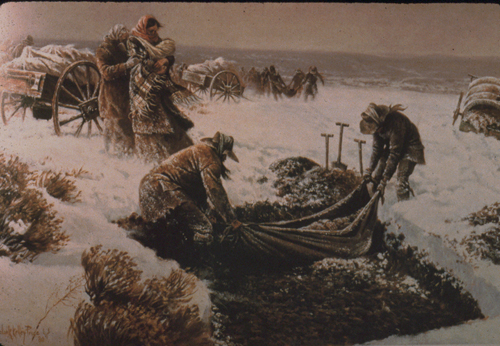
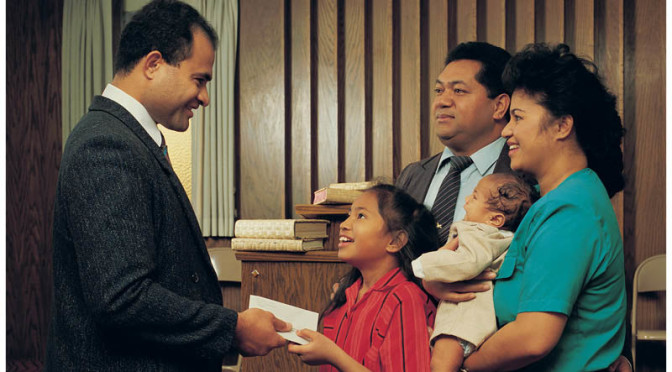


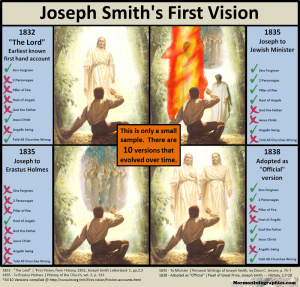


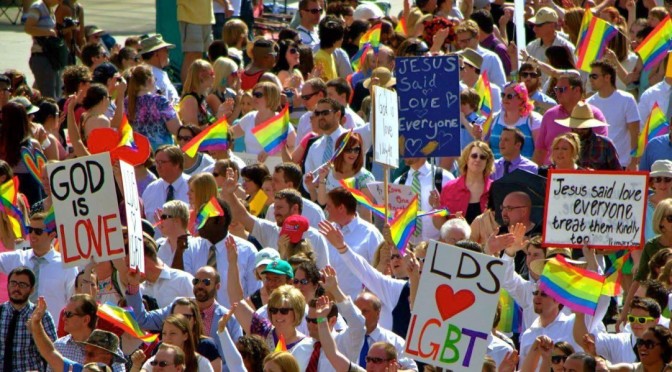

 In the last week there have been 2 significant changes to the LDS “Handbook 1” (which goes to the stake and bishop leadership levels), both relating to homosexuals.
In the last week there have been 2 significant changes to the LDS “Handbook 1” (which goes to the stake and bishop leadership levels), both relating to homosexuals. 